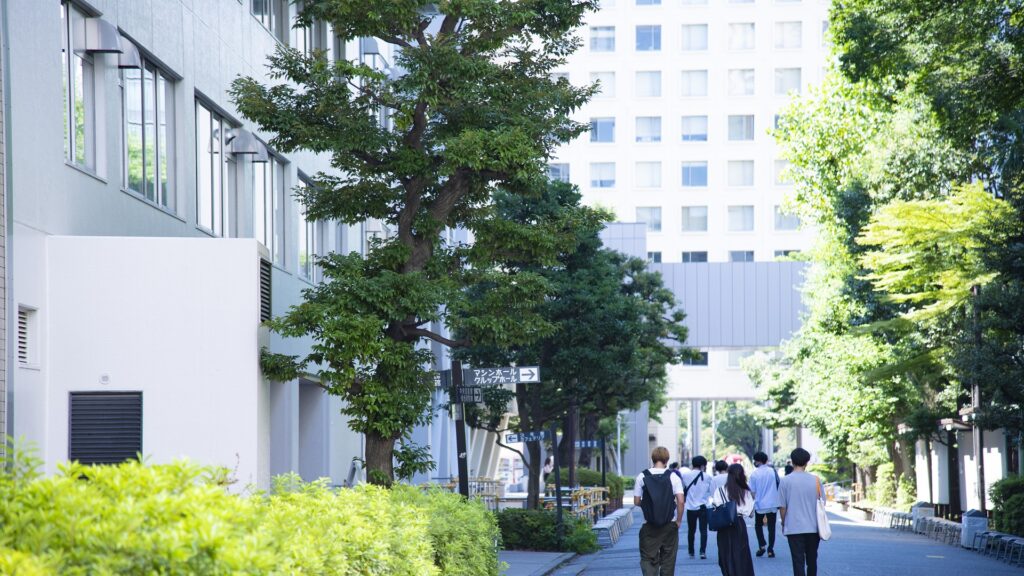Harassment Prevention Measures

In order to achieve a harassment-free campus, Sophia University prohibits any form of harassment and respects the individuality of all its members. In order to guarantee a fair and safe student living environment, Sophia University strives to prevent harassment.
For further details, please refer Web Piloti “Aiming for a Campus Without Harassment”.
What is Harassment at a University?
Among the various types of harassment that exist in society, there are four main types of harassment that may occur at universities: sexual harassment, academic harassment, power harassment, and harassment related to pregnancy, childbirth, childcare, and family care leave.
1. Defining Sexual Harassment
Sexual harassment is defined as any behavior that benefits, disadvantages, or makes a person feel uncomfortable in education, research, study, student life, or employment by using unwanted sexual or sexist language or behavior in an educational, research, study, student life, or employment environment.
2. Defining Academic Harassment
Academic harassment is inappropriate language or behavior in research, education, or employment by a faculty member toward another faculty member or student, etc., taking advantage of a relationship of power, hierarchy, or superiority in education or research.
3. Defining Power Harassment
Power harassment is inappropriate work-related behavior by a faculty or staff member toward another faculty or staff member by improperly taking advantage of his or her position or authority in the workplace.
4. Defining Pregnancy, Childbirth, and Childcare/Nursing Care Leave Harassment
Definition of harassment related to pregnancy, childbirth, and childcare/nursing care leave, etc. Harassment related to pregnancy, childbirth, and childcare/nursing care leave, etc. is defined as (1) Harassment of another female faculty member for her pregnancy, childbirth, or use of related systems, etc., or (2) Inappropriate words or actions by a faculty member toward another faculty member’s use of systems related to childcare or family care leave, etc. (However, this does not apply to behavior that is deemed reasonably necessary for work from the standpoint of work assignment, safety considerations, etc.).
Consultation to Problem Resolution Process
Protection of privacy and prohibition of prejudicial treatment
- Those involved in harassment counseling and problem solving will maintain strict confidentiality and protect the privacy of those involved.
- No disadvantageous treatment shall be given to any person who consults with us, files a harassment report, or cooperates in an investigation.
- False allegations or testimony are prohibited and may result in disciplinary action if such conduct is discovered
Consultation Service
1)On Campus Consultation Services
On-campus counseling services You can contact the “Harassment Consultation Desk” or a Sophia University faculty/staff member, “Harassment Counselor”, for on-campus harassment counseling. If you have any questions about the procedures from consultation to resolution, or if you are not sure which counseling counter or counselor you should consult, you may ask the counseling counter in advance. In addition to the Harassment Consultation Desk or Harassment Consultant, it is also possible to consult with a psychiatrist.
2)Off-Campus Harassment Consultation Service
In order to further strengthen the prevention of harassment, in addition to the Harassment Consultation Desk and the on-campus counseling system staffed by harassment counselors, Sophia University has established the “Off-Campus Harassment Consultation Service”. The Off-Campus Harassment Consultation Service can be accessed via the dedicated hotline (telephone), the web, in writing, or by e-mail.